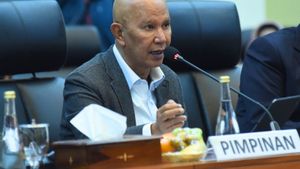JAKARTA - The government of Kosovo on Tuesday, January 4 announced a ban on cryptocurrency mining in a bid to limit electricity consumption as the country faces its worst energy crisis in a decade due to power outages disrupting production.
"All law enforcement agencies will stop the production of this activity, in collaboration with other relevant agencies that will identify the locations where any cryptocurrency production is located," said Economy and Energy Minister Artane Rizvanolli in a statement.
The cheap price of electricity in Kosovo in recent years has made many young people in Kosovo involved in crypto mining because it is very profitable for their income. This makes the electrical conditions in Kosovo burdened.
One miner, who asked not to be identified and who owns 40 GPUs (Graphics Processing Units), told Reuters he pays around 170 euros a month for electricity and gets around 2,400 euros. ) per month profit from crypto mining in Kosovo. That amount was more than ten times, and it sounded very cheap compared to other countries.
Coin mining has increased in northern Kosovo, mostly inhabited by Serbs who do not recognize the state of Kosovo and refuse to pay for electricity.
Faced with coal-fired power outages and high imported coal prices, Kosovo authorities last month were forced to carry out regular power cuts.
Meanwhile gas prices in Europe also jumped more than 30% on Tuesday after low supplies from Russia raised another warning about concerns about an energy crisis as cold weather approaches.
In December, Kosovo declared a 60-day state of emergency that would allow the government to allocate more money to energy imports, and bring about more blackouts and tougher measures.
This country of 1.8 million people now imports more than 40% of the energy it consumes in high demand during winter when people use electricity mainly for heating.
About 90% percent of energy production in Kosovo comes from lignite, a soft coal that produces toxic pollution when burned. Official figures show Kosovo has the fifth largest lignite reserves in the world with 12-14 billion tonnes.
The English, Chinese, Japanese, Arabic, and French versions are automatically generated by the AI. So there may still be inaccuracies in translating, please always see Indonesian as our main language. (system supported by DigitalSiber.id)













